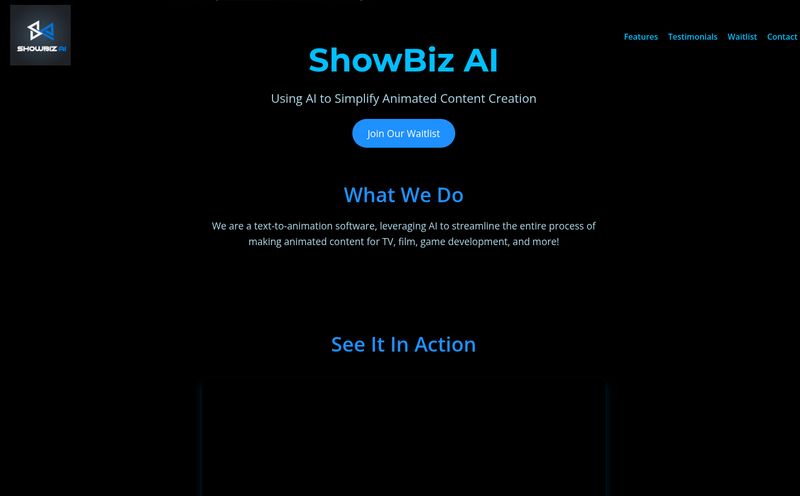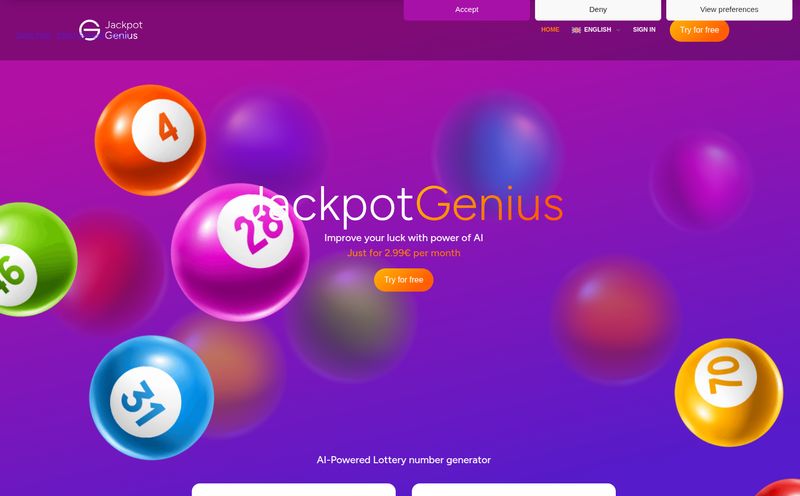If you're in the SEO or tech space like me, you probably feel like you're drinking from a firehose of AI news these days. Every single morning, there's a new model, a new tool, a new 'game-changer'. We had text-to-image with Midjourney, then text-to-video with OpenAI's Sora, and honestly, it's getting hard to be impressed.
But every once in a while, something comes along that makes you stop scrolling and just say, "...whoa."
For me, that was Google DeepMind's latest project: Genie. This isn't just about making a pretty picture or a short video clip. This is about creating entire, playable, interactive 3D worlds from a single image prompt. Let that sink in for a moment. Worlds. From a picture. It’s the kind of tech that feels like it was pulled straight out of science fiction, and frankly, I'm both incredibly excited and a little bit terrified.
So, What on Earth is Google's Genie 2?
In the simplest terms I can manage, Genie is a foundation world model. I know, more jargon. Think of it like this: instead of being trained on text or images to describe the world, it's been trained on internet videos—mostly gameplay footage—to understand how a world works. It learns about actions, consequences, and physics, all from watching people play games.

Visit Genie 2
The result? You can feed it a picture—a child’s drawing, a random photo, a piece of concept art—and Genie will generate a basic, playable 2D platformer-style game based on it. It creates a character you can control and a world that responds to your actions. It's less like a typical game engine and more like a digital god-in-a-box, building a sandbox for you on the fly. I've been in this game for years, watching procedural generation evolve from simple dungeons in Rogue to the sprawling (and initially, kinda empty) planets of No Man's Sky. This feels different. This feels... intuitive.
The Magic Under the Hood: More Than Just a Pretty Picture
When I first read the paper from DeepMind, I was skeptical. Generative models often produce things that look good but are functionally hollow. A beautiful AI-generated image of a car doesn't mean you can open the door. But Genie is different, and it's because of a few key things.
It's Alive! Real-Time Physics and Interaction
This isn't just a static diorama. The worlds Genie creates have a sense of cause and effect. The demos show characters jumping on squishy platforms that deform, water that has actual fluid dynamics, and objects that can be pushed around. This is the secret sauce. It’s not just generating the look of a world, it’s generating the rules of that world. This is where so many procedural generation attempts have fallen flat. They create beautiful, but dead, environments. Genie seems to be breathing life into its creations.
A School for Robots? The AI Training Angle
Here’s where you see the Google DeepMind DNA shining through. Genie isn't just a toy for us humans. It's a powerful tool for training other AIs. Imagine you want to teach an AI to navigate a complex environment. Instead of painstakingly building thousands of virtual training levels, you could just have Genie spit them out. Infinitely. You could generate endless variations of a scenario to create more robust and adaptable AI agents. The implications for creating smarter, more believable NPCs in our future games are just... staggering. We could finally move past characters who just walk in a set path and stare blankly at walls.
What This Means for People Who Actually Make and Play Games
This is the part that really gets my professional gears turning. The theoretical is cool, but what's the practical impact? As someone who has dabbled in game dev and works with countless creative clients, I see a couple of huge opportunities.
A Dream for Indie Devs and Prototypers
Game development is hard. Like, really hard. A huge chunk of that difficulty comes from asset creation and world-building. For a small indie team or a solo developer, creating a compelling world can take years. Now, imagine you could sketch out a level idea on a napkin, take a photo, and have a playable prototype in minutes. That’s the promise here. The ability to iterate on ideas at the speed of thought could fundamentally change how games are designed. It lowers the barrier to entry, and that always leads to more creativity and innovation.
For Us Players: Infinite Worlds?
We've been promised infinite, unique gameplay experiences for decades. And while some games have come close, you often start to see the patterns, teh seams in the algorithm. Because Genie learns from such a diverse set of data, it has the potential to create genuinely surprising worlds. Imagine a game that generates a new, unique world for every single player, based on their own art or a photo they love. That’s a powerful, personal connection that we just don't have right now.
Okay, Let's Pump the Brakes a Little
As excited as I am, my years of experience have taught me to have a healthy dose of skepticism. Big tech demos are one thing; a usable product is another entirely. There are some serious hurdles here.
- It's Not Public: First and foremost, you and I can't use it. Right now, Genie is a research project. There's no download link, no beta signup, no API to play with. It's just a very impressive tech demo.
- The System Requirements From Hell?: The paper is light on details about the hardware used to run this. Generating an interactive world with real-time physics simulation from a prompt sounds... intensive. I have a pretty beefy rig (don't we all claim to?), but I have a sneaking suspicion this thing will make a high-end GPU weep.
- Performance and Complexity: The demos are all fairly simple 2D platformers. How will it perform when you ask for something more complex? A sprawling city? An intricate forest? Performance will almost certainly vary wildly, and that lack of predictability is a challenge for real-world development.
The Inevitable Question of Cost
Ah, the million-dollar question. Or maybe the multi-million-dollar question. There's no pricing page, of course. It's not a product yet. But we can speculate. Looking at how other high-end AI models are priced (looking at you, GPT-4 and Claude 3), it's safe to assume this won't be free. I'd wager on a credit-based system or a pricey API call for generation. For an indie dev, this could be a major barrier. But for a larger studio, the cost might be easily offset by the massive savings in prototyping and asset creation time.
Frequently Asked Questions About Genie 2
What is Google Genie 2?
- It's a generative AI model from Google DeepMind that can create simple, playable, 2D platformer-style games from a single input image, like a photo, sketch, or piece of art.
Can I use Genie 2 right now?
- Nope, not yet. As of right now, it's a research project and not available to the public. We'll all have to wait and see when or if they release it for broader use.
What do I need to run Genie 2?
- The exact system requirements haven't been released, but it's very likely that it will require significant computing power, similar to other large-scale AI models.
Is Genie 2 just for making games?
- While game creation is the most obvious use, its core function is to create interactive environments. This makes it incredibly valuable for training other AI agents for tasks like robotics, navigation, and problem-solving in a safe, simulated space.
How is this different from other AI image or video generators?
- The key difference is interactivity. Image generators create static pictures. Video generators create non-interactive movies. Genie creates an environment with rules and physics that a user (or another AI) can actually control and play within.
Will Genie 2 replace game developers?
- I really don't think so. In my opinion, it's a tool, not a replacement. A hammer doesn't replace a carpenter. Genie could handle the tedious parts of world-building, freeing up developers to focus on what truly matters: gameplay mechanics, story, and creating a fun experience. It augments creativity, it doesnt replace it.
So, Is Genie the Real Deal?
It's easy to get cynical in this industry. We've been burned by hype before. But Genie feels different. It represents a fundamental shift from AI that merely describes our world to AI that can build functional, interactive versions of it. It’s a tool for creation and a school for intelligence, all rolled into one.
Even with the caveats—it's not public, it'll probably be expensive, and it might melt my PC—I can't help but feel a genuine spark of excitement. This is one of those moments that reminds me why I got into tech in the first place. It's not about the traffic or the CPCs. It's about seeing something that pushes the boundaries of what's possible. I, for one, cannot wait to get my hands on it and see what chaos I can create.
References and Sources
- Google DeepMind Official Blog Post: Genie: A generative interactive environment



